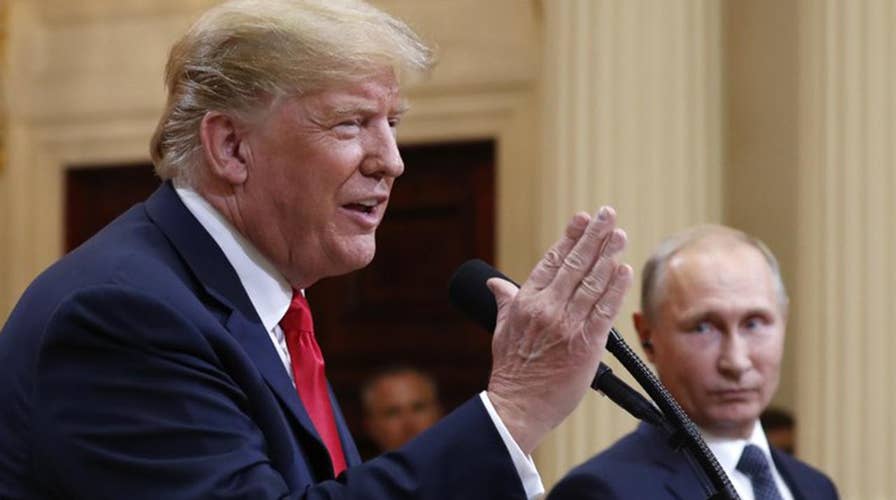Trump to hit Russia with new sanctions over chemical attack
State Department says it will impose new sanctions on Russia for using a nerve agent to poison a former spy and his daughter in Britain.
Newly announced U.S. sanctions—and the potential for a second round of actions in 90 days—roiled Russia’s currency and blue-chip stocks as the country braced for further economic pain amid uncertainties over the Trump administration’s commitment to enforcement.
In Moscow, the ruble shed as much as 5% against the dollar on Thursday and stocks plunged as much as 9%, led by state banks and national carrier PJSC Aeroflot-Russian Airlines , which risk losing access to U.S. markets if the sanctions escalate. In Washington, the administration remained notably silent on the action and offered few details on the severity of the prospective punishments.
The sanctions stem from a March nerve-agent attack against a former Russian spy in the U.K. The U.S. and Britain have held Russia responsible for the attack. Moscow has repeatedly denied involvement.
The sanctions are mandated by a U.S. law that requires action over the use of chemical and biological weapons—but President Trump maintains significant discretionary power over the degree of that punishment.
A spokesman for President Vladimir Putin of Russia struck a cautious tone and said Moscow remained committed to building “constructive relations with the U.S.” and wouldn’t draft countermeasures before learning the full details.
Others in the country expressed alarm and dismay over the U.S. move, which threatened to diminish hopes of improved bilateral ties.
Lawmakers from Russia’s ruling party accused U.S. politicians of treating the country like a punching bag in their partisan infighting and in midterm campaigning. On state television, analysts and commentators lamented Trump’s inability to push through a hostile Congress a reset in relations with Russia following a summit with Putin in Helsinki in July.
The head of the foreign-relations committee of Russia’s Senate, Konstantin Kosachev, compared the new sanctions to a “lynching.”
“The U.S. is once again behaving like a police state, beating out evidence from suspects by threats and torture,” he told Interfax.
The Kremlin, meanwhile, repeated its previous denial of any involvement in the attack on Sergei Skripal and his daughter Yulia in southern England this year, while playing down the importance of the sanctions.
As a volatile day unfolded in Moscow, response from Washington was muted. Trump made no public comments on the matter, and communications aides referred all questions to the State Department, which said the U.S. still sought improved ties with Moscow.
Department spokeswoman Heather Nauert said the administration had “complied with the law” and would continue to do so, but added: “We’d like to have a better relationship with the Russian government, recognizing that we have a lot of areas of mutual concern.”






